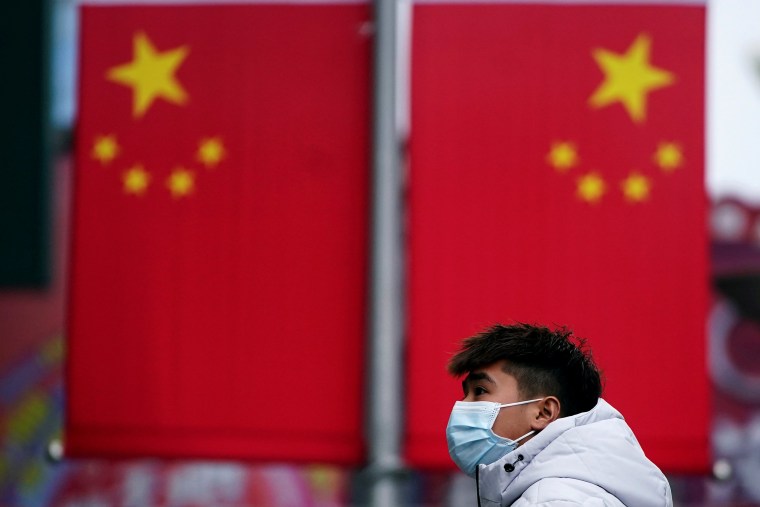China was intensifying efforts Friday to contain a deadly coronavirus outbreak by building a 1,000-bed hospital and shutting down public transport links as the virus continues to spread.
The 270,000-square-foot hospital, due to be finished Feb. 3, will be reserved for patients infected with the virus that has so far killed 26 people, infected hundreds and prompted unprecedented shutdowns affecting millions of people during Lunar New Year, the country’s most important holiday.
Transportation was shut down Friday in Wuhan and least 13 surrounding cities in Hubei province, with a combined population of more than 33 million people, according to a report in the state-run Global Times newspaper. At least three cities were on total lockdown as of Friday evening.
Health authorities are also on high alert across the world with confirmed cases in at least seven countries and several others undergoing tests. So far, there is just one confirmed case in the United States — a patient who flew from China to Washington state tested positive Tuesday.
The number of confirmed cases has risen to 830, China's National Health Commission said.
In Hubei, the emergency level was raised to level two, meaning large supermarkets, farmers markets and hotels are to be shut down indefinitely, the Global Times reported.
Wang Xiaodong, Hubei's provincial governor, said the crisis had "entered a critical stage" and described shutting down the city as a tough but a necessary choice.
"We must resolutely curb the spread of the epidemic to other places," he told state media. "This is a major responsibility that we must take. As a big city with more than 10 million people and a major transport hub of the country, Wuhan sees large population flow during the Spring Festival holiday, whereby poses great risks to the spread of the epidemic."
The new hospital, which was announced by Wuhan's government Friday, will be in the style of a facility that Beijing constructed during the SARS epidemic in 2002-03.
Normally bustling streets, malls and other public spaces were eerily quiet in Wuhan on the second day of its lockdown. Masks were mandatory in public, and images from the city showed empty shelves as people stocked up for what could be an extended isolation.
Authorities were taking precautions around the country. In Beijing, major public events were canceled indefinitely, including traditional temple fairs that are a staple of Lunar New Year celebrations.
Major tourist destinations, including Beijing’s Forbidden City and the Shanghai Disneyland, announced they will close indefinitely Saturday. Sections of the Great Wall of China will also close, authorities said.

The vast majority of cases have been in and around Wuhan, but people who visited or had personal connections to infected people were among the scattered cases counted beyond the mainland. South Korea and Japan both confirmed their second cases Friday and Singapore confirmed its third. In addition to the case in the U.S., others have been detected in Hong Kong, Macao, Taiwan, Thailand and Vietnam.
The World Health Organization said Thursday it was "too early" to declare the outbreak a global health emergency. Such a declaration could increase public resources to fight a threat but could cause great economic damage.
Richard Hatchett, CEO of the Oslo, Norway-based Coalition for Epidemic Preparedness Innovations, told the BBC on Friday that clinical trials for a vaccine to the virus would begin in the summer, but added that it could be more than a year until one was made available.
The coronavirus family includes the common cold as well as viruses that cause more serious illnesses, such as the SARS outbreak that spread from China to more than a dozen countries in 2002-03 and killed about 800 people, and the Middle Eastern respiratory syndrome, or MERS, which is thought to have originated from camels.
Initial symptoms of the virus can mirror those of the cold and the flu, including cough, fever, chest tightening and shortness of breath, but can worsen to pneumonia.
The Wuhan outbreak is suspected to have started from wild animals sold at a food market in the city. The market is closed for investigation.
Patrick Smith reported from London, Janis Mackey Frayer reported from Beijing.
The Associated Press contributed to this report.
CORRECTION: A previous version of this article misstated the years of a SARS virus outbreak in China. It was 2002 to 2003, not 2012 to 2013.

